Students Across the Country Call for a Back-to-School Ban on Facial Recognition
For immediate release: September 28, 2024
Fight for the Future: Caitlin Seeley George, press@fightforthefuture.org; Encode Justice: Jia M., michelj9012@gmail.com
This back-to-school season, students, parents, and activists across the country are calling on the U.S. Department of Education and state education agencies to ban the use of facial recognition technology in schools.
Fight for the Future and Encode Justice partnered up to host actions in California, D.C., Georgia, and New York on September 27th and September 28th as a part of the Ban Facial Recognition in Schools campaign. During actions, dozens of student organizers and privacy advocates contacted policymakers, raised awareness amongst students and community members, and said loud and clear that facial recognition has no place in schools.
Images of the event are available here: https://drive.google.com/drive/u/0/folders/12ZnO-jYXjEaWBkylihNe4wse3eljkbEK
On Friday, Fight for the Future, Defending Rights & Dissent, and Electronic Privacy Information Center (EPIC) hand-delivered nearly 12,000 petition signatures to the U.S. Department of Education, calling for a ban on facial recognition in school. Across the country, Encode Justice California hosted a virtual “learn-athon” educating students on the dangers of facial recognition featuring and speeches from students and STOP LAPD Spying Coalition. They also used the time to send emails to the California State Board of Education. Encode Justice Georgia hosted a virtual action educating students on facial recognition and sending emails detailing their concerns and advocating for a ban to the Georgia State Board of Education.
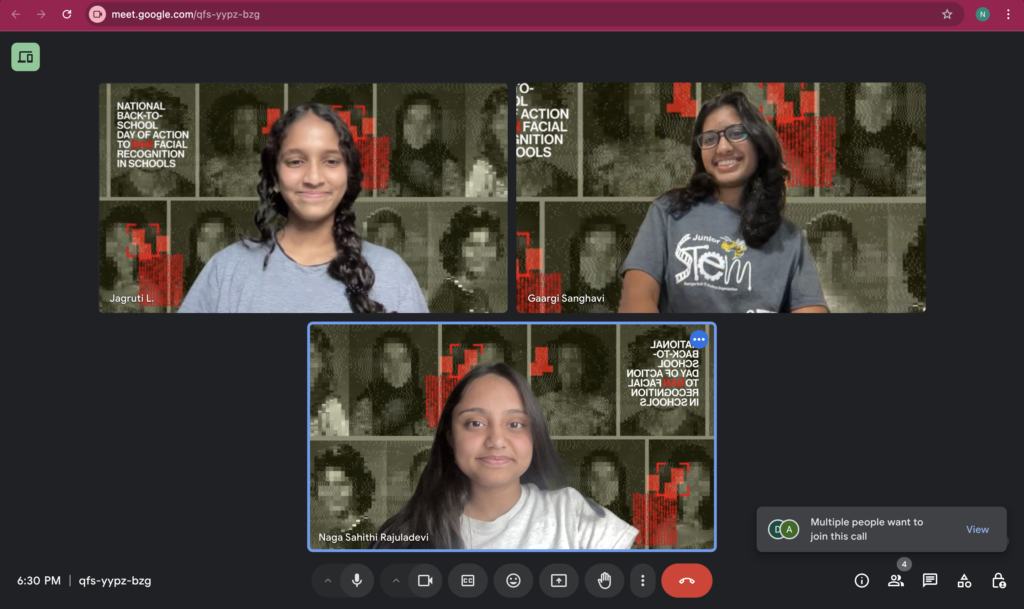
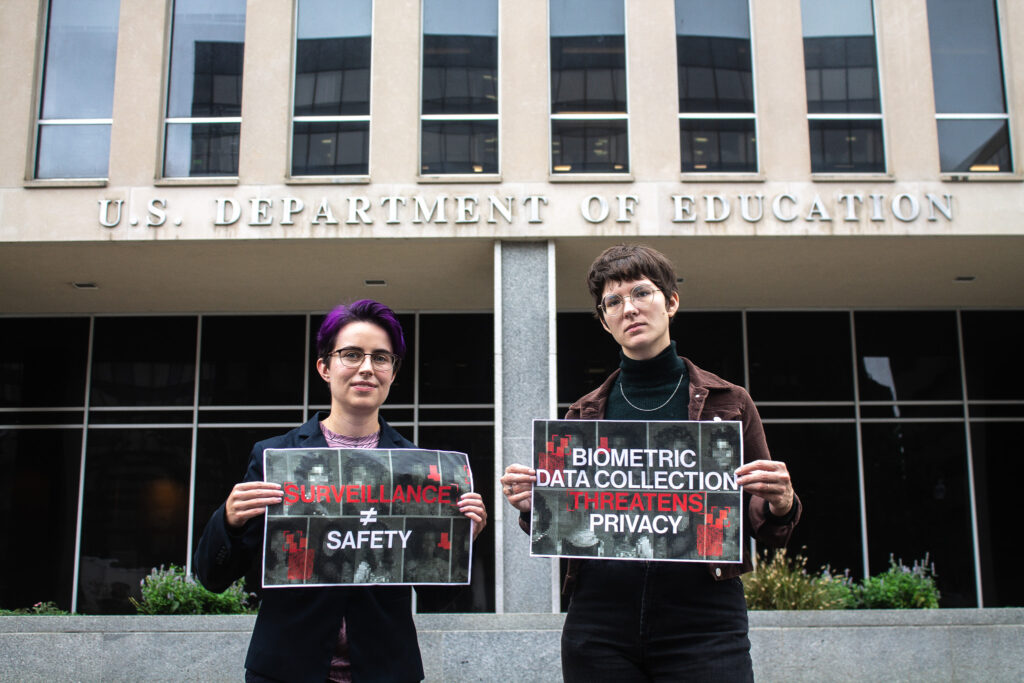
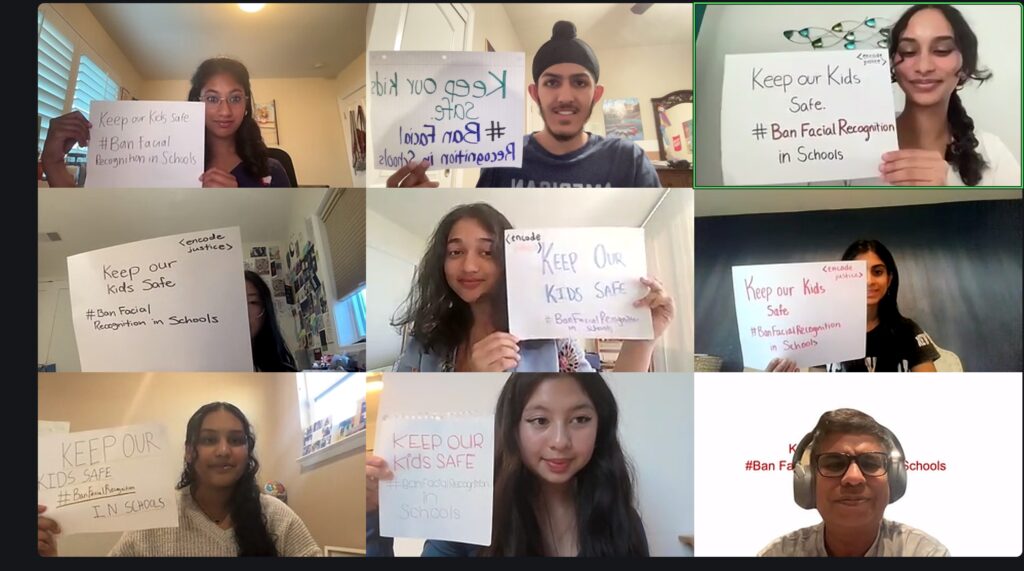

On the 28th, Encode Justice New York and Surveillance Technology Oversight Project (S.T.O.P) hosted an action at Prospect Park, where they gathered petition signatures and wrote letters to the U.S. Department of Education in favor of a national ban on facial recognition in schools, as well as to state lawmakers for stronger protections against biometric data collection in New York.
Organizers are specifically calling on the U.S. Department of Education to fulfill its responsibilities under the White House’s Executive Order on the Safe, Secure, and Trustworthy Development and Use of Artificial Intelligence by putting out a guidance advising schools to reject facial recognition technology. Additionally, organizers are asking state education agencies across the country to follow the lead of the New York State Education Department to immediately prohibit schools from using this invasive and biased technology.
“As high school students, we are frequently subjugated to unfair surveillance — often a result of bandage solutions to root issues that affect our daily lives,” said Jia M., a high schooler and Executive Director of Encode Justice New York. “After talking with high school students and parents from Lockport School District, we know what is on the line. Facial recognition technologies, which often misidentify communities of color while having privacy and security issues, must be banned in high schools. Through a day of actions, workshops, discussions with community leaders, and the mobilization of high school students, we are using local action for federal change.”
Facial recognition technology isn’t safe. It’s biased, and more likely to misidentify students of color. It’s invasive, enabling anyone with access to the system to watch people’s body movements, analyze facial expressions, monitor who speaks with whom, and even track how many times someone goes to the bathroom. Organizers hope that the U.S. Department of Education and state education agencies will listen to students and take swift action to stop this dangerous technology from staying in schools.
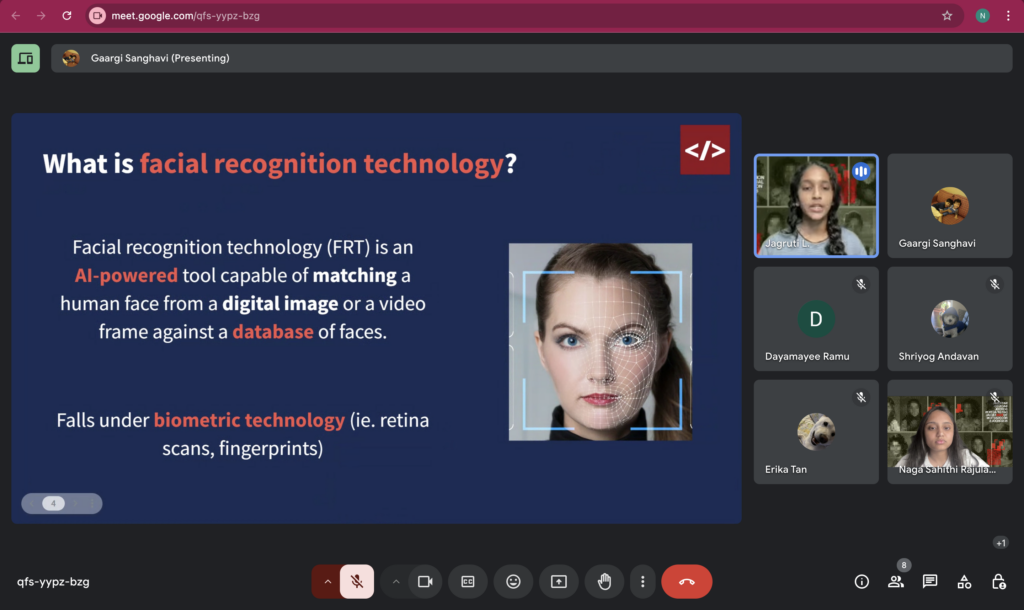
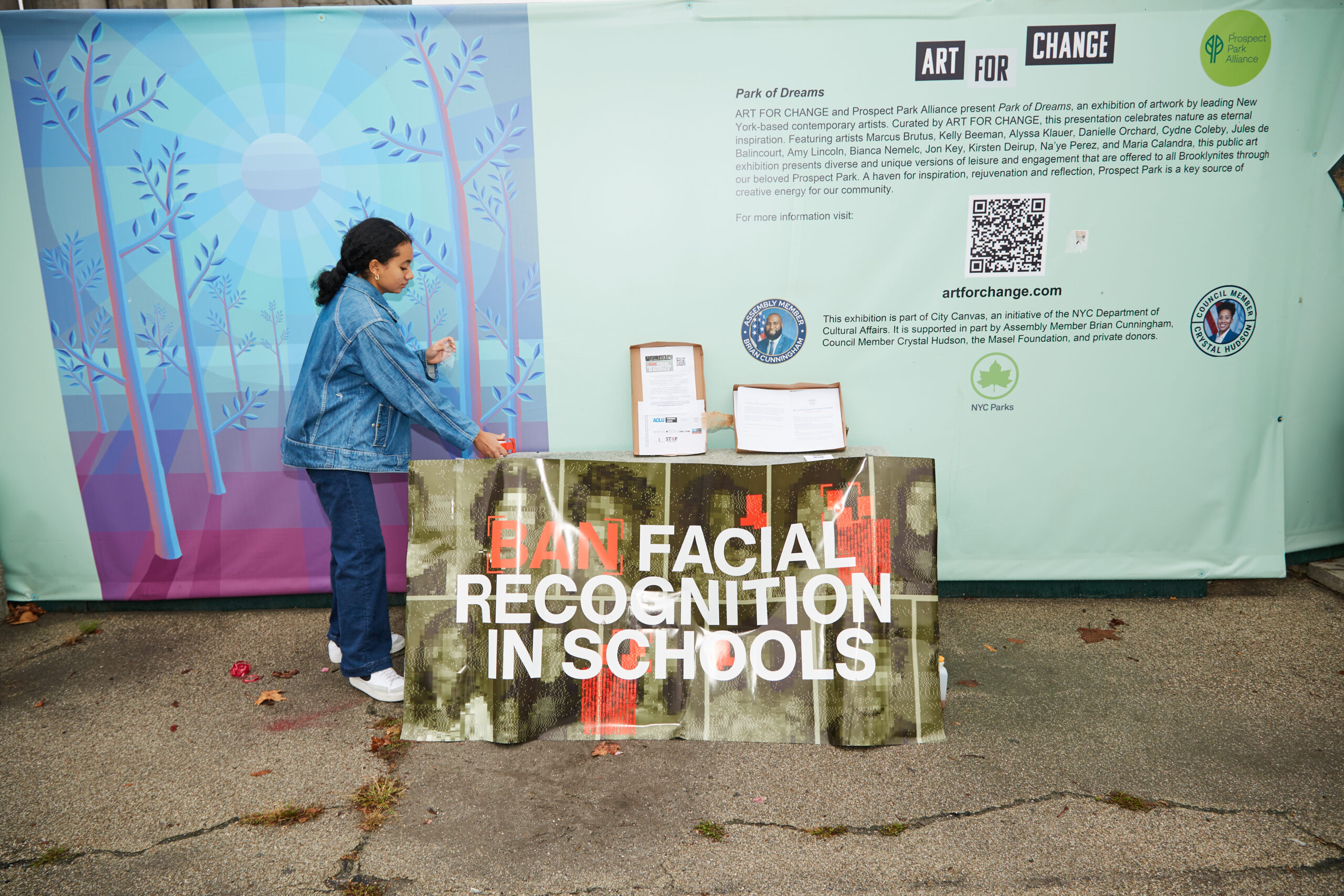
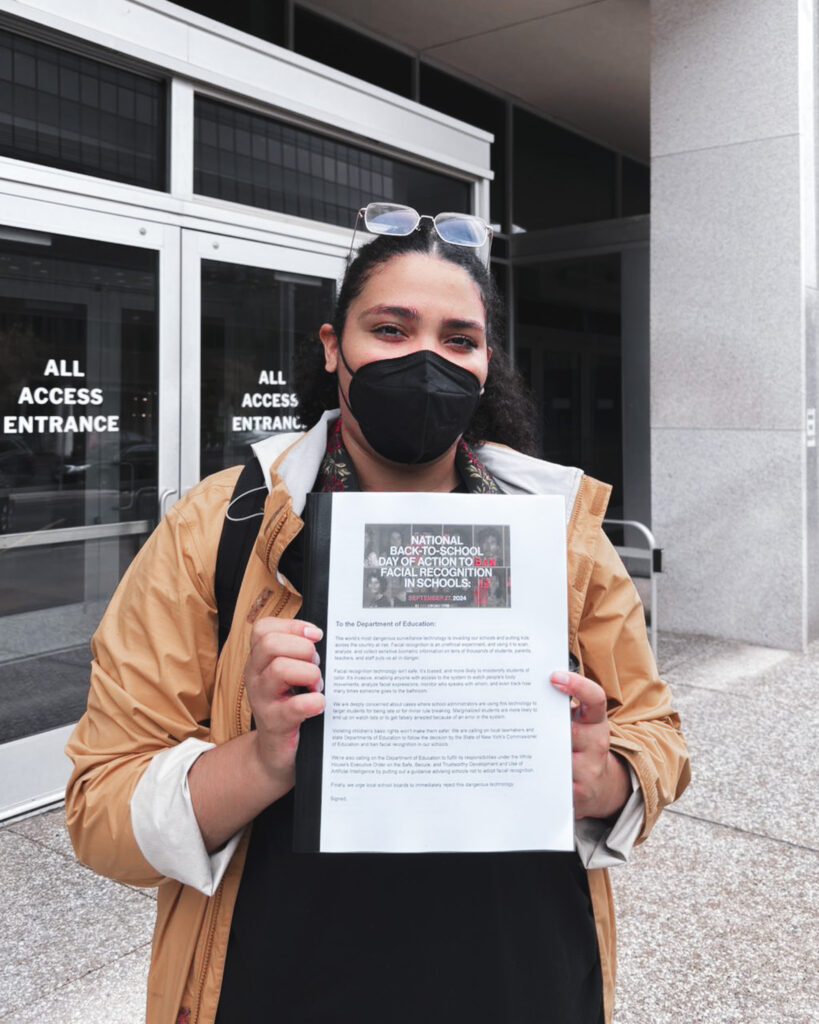

“Surveillance tech companies are maliciously peddling facial recognition to schools, putting students, teachers, and staff in danger just to make a buck,” said Caitlin Seeley George, campaigns and managing director at Fight for the Future. “This technology has no place in our schools—it is a waste of resources that could be used on things that we know improve our schools, like teacher salaries, access to art and music classes, and educational materials. The Department of Education has the opportunity to advise schools against using this tech, and they should use every tool they have to inform schools about how facial recognition is a false promise. It is critical that federal and state decision makers listen to the people engaging in these days of actions and use their authority to say no to facial recognition technology.”
###

